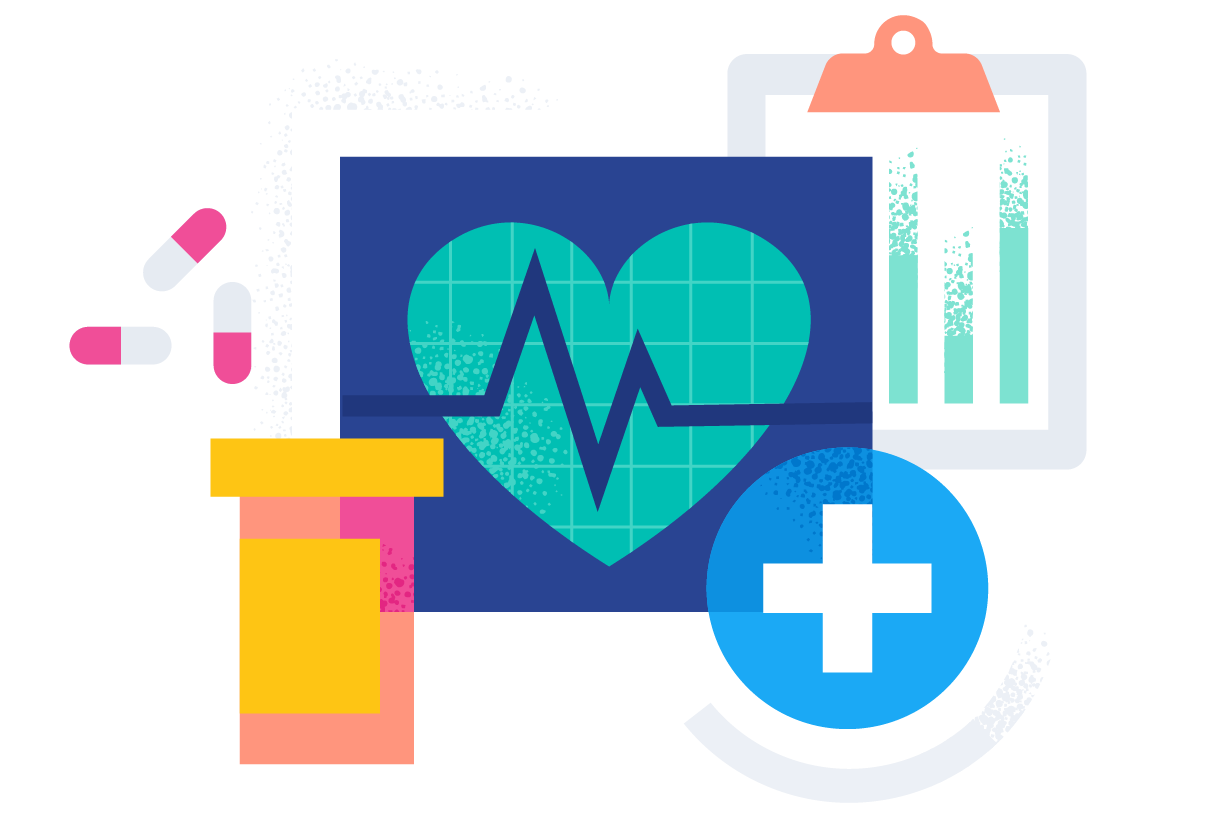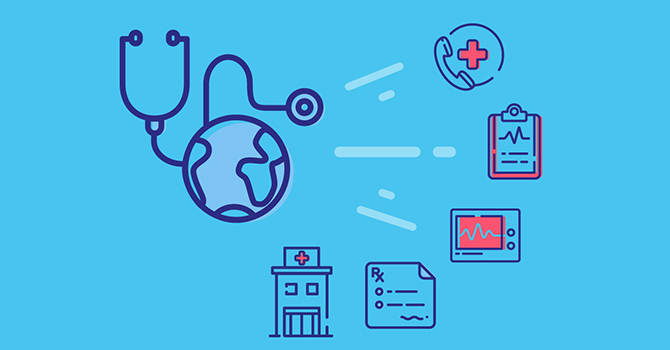Discover How Healthcare RCM Processes Transform Administrative Tasks Into Seamless Procedures
In the ever-evolving landscape of health care, Earnings Cycle Monitoring (RCM) processes have become an essential force in changing administrative jobs right into smooth operations. By harnessing innovative innovation and refined methodologies, RCM supplies an advanced approach to handling patient enrollment, billing, and asserts processing. These innovations not just reduce mistakes and boost efficiency yet likewise increase money flow and raise person contentment. Nevertheless, what exists below the surface area of this transformative shift? What detailed mechanisms and strategies are used to guarantee such smooth assimilation? The solution to these concerns are essential for recognizing the future of healthcare administration.
Comprehending Medical Care RCM
Earnings Cycle Monitoring (RCM) in healthcare is an important procedure that makes certain the monetary wellness of clinical establishments by looking after the whole lifecycle of person solution income. It incorporates numerous administrative and professional functions, starting from the initial scheduling of a medical consultation to the eventual collection of repayment for solutions made. Healthcare RCM. RCM is critical in managing the complexities of invoicing and compensations, making sure that doctor get payment for their services effectively and accurately
A comprehensive understanding of RCM involves identifying the several elements that make it successful. Trick facets include client scheduling, insurance confirmation, fee capture, insurance claim entry, and payment posting. Each of these components needs careful focus to detail and durable systems to alleviate mistakes that can cause income loss. In addition, RCM is not exclusively about financial collections; it likewise aims to improve person fulfillment by minimizing billing mistakes and improving openness.
The efficiency of RCM rests upon the seamless assimilation of technology and personnel know-how. Employing advanced software program solutions allows medical care establishments to automate repeated jobs, therefore reducing administrative burdens. Furthermore, skilled employees are vital in browsing governing requirements and payer policies, guaranteeing conformity and enhancing earnings recovery.
Improving Client Registration
Simplifying patient registration is an essential step in enhancing the effectiveness of medical care earnings cycle monitoring. It entails maximizing the first communication in between clients and healthcare providers to ensure a smooth data collection process. Key components include the exact capture of person demographics, insurance policy confirmation, and authorization procurement. By digitizing these processes through incorporated digital health and wellness records (EHR) systems, health care facilities can reduce errors, lower documents, and accelerate individual throughput (Healthcare RCM).
Automated systems assist in verifying insurance policy qualification in real-time, which not just reduces administrative worries yet additionally boosts person contentment by stopping unforeseen payment problems. Additionally, pre-registration procedures permit clients to full types on-line prior to their check out, reducing delay times and enabling personnel to concentrate on even more complex jobs. This aggressive method guarantees that all necessary details is collected and confirmed prior to care is given, thus protecting against delays in succeeding billing and declares procedures.
Training personnel to make use of these systems successfully is crucial. It makes sure that information entry is regular and accurate, cultivating a seamless shift from client registration to various other earnings cycle procedures. Ultimately, improving individual enrollment lays the structure for a much more effective, patient-centered health care distribution version.
Efficient Billing Solutions
Effective payment solutions are essential to optimizing healthcare revenue cycle administration. They act as the backbone for making certain timely and exact financial transactions between patients, health care companies, and insurance policy firms. By leveraging innovative modern technology and structured processes, healthcare centers can significantly reduce invoicing errors, reduce delays, and enhance capital. Carrying out robust billing systems facilitates exact cost capture, ensuring all solutions made are represented and billed properly. Automation tools can fix up billing information with professional documents, avoiding and reducing discrepancies claim rejections.
Moreover, efficient payment remedies empower medical care companies to supply clear pricing and invoicing information to individuals, cultivating depend on and improving person fulfillment. Real-time billing systems allow health care team to provide instant responses on patient qualification and out-of-pocket costs, improving the total patient experience. These options also permit smooth integration with electronic wellness records (EHR), making sure that payment and medical info are in sync, decreasing management concerns on doctor.
Incorporating efficient payment remedies into the income cycle administration structure not just optimizes operational effectiveness however additionally reinforces financial performance. By reducing errors, speeding up repayment cycles, and boosting patient communication, medical care companies can concentrate more on delivering quality care while maintaining financial sustainability.
Enhancing Insurance Claims Processing

In the world of health care earnings cycle monitoring, maximizing insurance claims processing is vital for keeping monetary health and wellness and operational efficiency. A streamlined claims process decreases the time in between service shipment and repayment, thereby enhancing capital and lowering the chance of mistakes. Efficient claims refining starts with precise documentation and coding, which are vital to make sure that insurance claims are submitted without discrepancies that can result in delays or denials.
Leveraging innovative modern technology, such as automated claims monitoring systems, can substantially enhance the performance of this procedure. These systems are created to automate repetitive jobs, track claims via each stage, and flag potential concerns early. This not click for more info only lowers the administrative burden on team however additionally boosts the precision of submissions by minimizing human mistake.

Enhancing Revenue Collection

Additionally, rejection monitoring plays a vital role in optimizing revenue collection. Recognizing patterns in claim rejections, understanding root reasons, and carrying out restorative actions can dramatically lower recurring issues, thereby improving capital. Providers should purchase robust analytics tools that help with comprehensive reporting and evaluation, see it here enabling them to address and fix denial patterns quickly.
Prompt follow-up on exceptional claims is another vital facet of income collection. Establishing an organized technique to monitor and seek aged accounts makes sure that no income is left unclaimed. Using dedicated team or automated systems to track these insurance claims can enhance efficiency and ensure regular cash inflows.
Conclusion
Healthcare Profits Cycle Administration (RCM) processes significantly enhance management performance by integrating sophisticated innovation and human expertise (Healthcare RCM). The automation of individual registration, payment, and asserts processing speeds up and reduces errors money flow, ultimately boosting person fulfillment through real-time insurance confirmation and clear billing. By ensuring smooth functional circulation, RCM permits health care carriers to focus on quality care while making best use of income recuperation and maintaining monetary stability, thus transforming management tasks into effective, streamlined operations
Earnings Cycle Monitoring (RCM) in health care is an essential procedure that makes certain the monetary health and wellness of medical institutions by supervising the entire lifecycle of patient solution earnings.Enhancing patient enrollment is a fundamental action in enhancing the performance of healthcare income cycle management. It includes enhancing the first interaction between clients and health care providers to make certain a smooth information collection procedure.Additionally, reliable billing services encourage health care companies to supply transparent pricing and invoicing information to clients, promoting depend on and boosting client fulfillment. Real-time invoicing systems enable healthcare staff to supply immediate responses on individual eligibility and out-of-pocket prices, improving the general Look At This person experience.